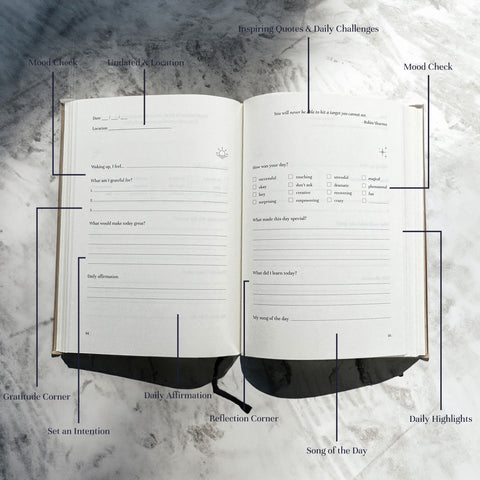5 Ways to Practice Mindfulness During the Day
Mindfulness is a state of being present, aware, and engaged in the present moment. It is a way of paying attention to your thoughts, feelings, and sensations, without judgment or attachment. Research has shown that mindfulness can have many benefits, such as reducing stress, improving focus, and enhancing well-being.
When practised consciously and continuously mindfulness can lead to the following benefits:
- Reducing stress and anxiety. Mindfulness can help you manage stress and anxiety by helping you focus on the present moment, rather than worrying about the past or the future. It can also help you develop a more balanced and accepting attitude towards your thoughts and emotions, which can reduce their intensity and frequency.
- Improving focus and concentration. Mindfulness can help you improve your focus and concentration by training your attention and awareness. It can also help you develop a more flexible and open-minded approach to tasks and challenges, which can enhance your productivity and creativity.
- Enhancing well-being. Mindfulness can help you cultivate a sense of gratitude, contentment, and connection with others and the world. It can also help you develop a more positive and compassionate attitude towards yourself and others, which can improve your mental and emotional well-being.
If you want to cultivate mindfulness and reap its benefits, here are some simple exercises you can try:
- Take a few minutes to focus on your breath. Sit quietly and comfortably, and close your eyes if you wish. Notice the sensation of the breath entering and leaving your body, and let go of any distracting thoughts. This can help you calm your mind and relax your body.
- Practice a body scan. Lie down or sit comfortably, and focus on your body from head to toe. Notice any tension or discomfort, and imagine releasing it and letting it go. This can help you relax your body and reduce stress and tension.
- Try a gratitude practice. As suggested in our guided journal, take a few minutes every day to think of things you are grateful for in your life, and write them down. This can help you shift your perspective and focus on the positive aspects of life, and cultivate a sense of gratitude and contentment.
- Use a mindfulness app. There are many apps that offer mindfulness exercises and guided meditations, which can help you practice mindfulness and calmness in different situations and settings. You can try a few different apps to see which ones work for you and use them regularly to develop your mindfulness skills. These are our favourites:
- WakingUp: A powerful app for daily guided meditation filled with theory to practice mindfulness in every day life. ($)
- How We Feel: Check in during your day to see how you feel. The app can also help you to fill in the morning routine in our guided journal. (Free)
- Take a break and do something you enjoy. Take a few minutes to do something you enjoy, such as listening to music, reading a book, or taking a walk. This can help you relax and recharge, and take your mind off any stress or worries.
Remember that cultivating calmness is a skill that takes time and practice. It is important to be patient and kind to yourself and to find a balance between challenge and ease. You can also seek guidance and support from a therapist or coach who can help you develop calmness and mindfulness skills.






